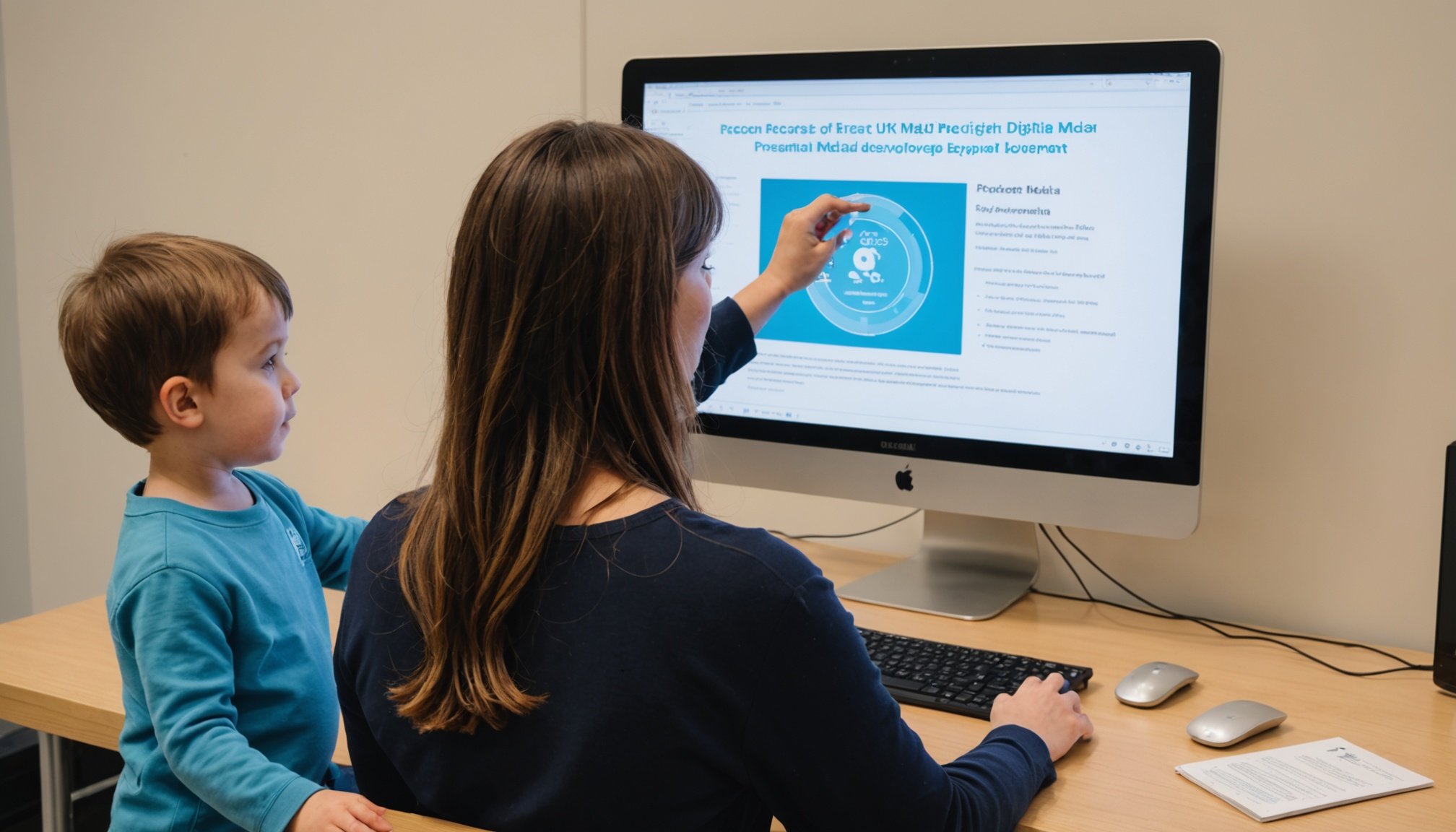Unveiling Recent UK Research: The Effects of Digital Media on Prenatal Development
In the modern era, the impact of digital media on various aspects of life is undeniable, and prenatal development is no exception. Recent studies in the UK have delved into how digital media influence the health, care, and decisions of pregnant women. This article will explore these findings, highlighting the key research, its implications, and practical insights for expectant mothers.
The Rise of Digital Health Information
Digital media have revolutionized the way people seek and share health-related information. For pregnant women, the internet and social media platforms have become essential resources for navigating the complexities of pregnancy.
In the same genre : Crafting the perfect first trimester fitness plan for expecting mothers in the uk: a guide to safe daily exercise
Information Seeking and Sharing
A study published on ResearchGate analyzed online “birth club” forums to understand how women use digital sources during pregnancy. The findings indicate that women turn to these forums for a variety of reasons, including seeking advice, sharing experiences, and finding emotional support[5].
Key Findings:
Also to read : Must-do exercises for expecting moms in the uk to enhance pelvic stability
- Community Support: Online forums provide a sense of community and support, which is crucial for pregnant women who may feel isolated or have questions that are not fully addressed by healthcare providers.
- Information Validation: Women often cross-check information found online with their healthcare providers to ensure accuracy.
- Emotional Support: Digital platforms offer a space for women to share their emotional experiences and receive support from others who are going through similar situations.
Impact on Maternal Health and Care
The use of digital media can significantly impact maternal health and care. Here are some ways in which this is happening:
Digital Health Interventions
Research by Health Data Research UK (HDR UK) has shown that data-driven approaches can improve our understanding of maternal health. For instance, a study on the use of sodium valproate during pregnancy highlighted the potential of linking anonymized health records to track the real-world effects of medicines on pregnant women and their children[1].
Professor Reecha Sofat, Associate Director at the BHF Data Science Centre, noted:
“For the first time, we can really assess the real-world use of medicines by different groups following changes in policy…. Using real-world data in this way means that we can avoid the challenges of traditional research methods, reducing time taken to make findings, and improving inclusion of underserved groups.”
Multilingual Support and Educational Materials
To address the diverse needs of pregnant women, initiatives like the Multilingual Maternity Padlet have been developed. This platform provides easy access to educational materials, video tutorials, and interactive content in multiple languages, empowering patients to make informed choices about their care[4].
Benefits:
- Accessibility: Multilingual resources ensure that women from diverse backgrounds can access vital information.
- Informed Choices: Educational materials help women make informed decisions about their health and care.
- Engagement: Interactive content keeps women engaged and motivated throughout their pregnancy.
Social Media and Pregnancy-Related Information
Social media platforms are increasingly being used to disseminate and seek pregnancy-related information. Here’s how this is shaping the experience of pregnant women:
Social Media Usage
A systematic review of studies on social media usage during pregnancy highlights several key points:
Key Points:
- Information Dissemination: Social media platforms are used to share information about pregnancy, childbirth, and postnatal care.
- Community Building: Social media groups and forums provide a space for women to connect, share experiences, and seek advice.
- Influence on Decisions: Social media can influence women’s decisions regarding their health care, including choices about prenatal testing and childbirth options.
| Aspect | Impact | Example |
|---|---|---|
| Information Dissemination | Wide reach and accessibility | Health organizations and influencers sharing pregnancy tips and updates on social media. |
| Community Building | Emotional support and connection | Facebook groups and online forums dedicated to pregnant women and new mothers. |
| Influence on Decisions | Shaping health care choices | Women considering non-invasive prenatal testing (NIPT) after reading about it on social media[3]. |
Practical Insights and Actionable Advice
For expectant mothers, navigating the digital landscape can be both beneficial and overwhelming. Here are some practical insights and advice:
Verifying Information
When seeking information online, it is crucial to verify the sources. Here are some tips:
- Use Reputable Sources: Look for information from trusted health organizations and academic journals.
- Cross-Check: Validate information found online with your healthcare provider.
- Be Cautious of Misinformation: Be wary of unverified claims and anecdotal evidence.
Dr. Caroline Dale, Research Fellow at the University of Liverpool, emphasized:
“Pregnant women are often excluded from traditional research methods… Our data-led approach is non-invasive and could be expanded to understand maternal health in pregnancy better.”
Leveraging Digital Tools
Digital tools and apps can be incredibly useful during pregnancy. Here are a few recommendations:
- Pregnancy Apps: Apps like What to Expect or BabyCenter provide week-by-week updates, symptom trackers, and community forums.
- Educational Resources: Utilize platforms like the Multilingual Maternity Padlet for educational materials and video tutorials.
- Social Media Groups: Join reputable social media groups for support and advice from other pregnant women.
Future Directions in Research
As digital media continue to evolve, so too will the research in this area. Here are some future directions and potential areas of study:
Integrating Real-World Data
Future studies could focus on integrating real-world data from various sources, including social media, health records, and wearable devices. This could provide a more comprehensive understanding of how digital media impact prenatal development.
Potential Areas of Study:
- Long-Term Outcomes: Investigating the long-term effects of digital media usage on child health and development.
- Personalized Interventions: Developing personalized digital health interventions based on individual needs and preferences.
- Cross-Cultural Studies: Conducting studies across different cultures to understand how digital media usage varies and impacts prenatal care globally.
The impact of digital media on prenatal development is a multifaceted and rapidly evolving field. As research continues to uncover the benefits and challenges of digital health information, it is crucial for expectant mothers to be informed and discerning in their use of these resources.
By leveraging reputable sources, verifying information, and utilizing digital tools effectively, women can make informed choices about their health and care. The future of this research holds much promise, with potential advancements in personalized interventions and a deeper understanding of the long-term outcomes of digital media usage during pregnancy.
In the words of Professor Reecha Sofat, “Using real-world data in this way means that we can avoid the challenges of traditional research methods, reducing time taken to make findings, and improving inclusion of underserved groups.” As we move forward, it is clear that digital media will play an increasingly important role in shaping the health and care of pregnant women and their children.

